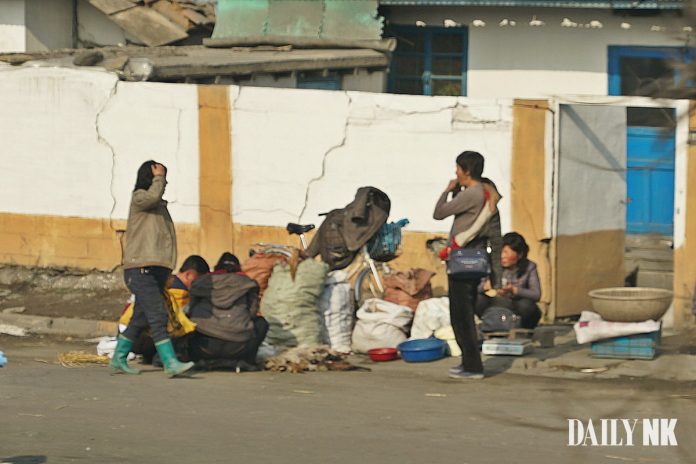
As North Korea endures a severe food shortage, desperate North Koreans have been selling their blood, a practice that has surged recently after the fall harvest failed to improve the food supply.
“In Hamhung, the number of hungry families has increased sharply, so more people are selling their blood just to afford at least one meal a day,” a source in South Hamgyong province told Daily NK recently.
The source said that if one out of every 20 people used to sell their blood to cover their expenses, that number has recently increased tenfold.
“The fall harvest is typically a time when more food is available. But this year, public access to food has not improved at all,” the source said.
All this suggests that North Korea’s food crisis is severe enough to endanger people’s survival.
In a typical blood donation, North Koreans give 400 milliliters of blood in exchange for 2 kilograms of cooking oil or 3 kilograms of rice—barely enough to feed a family of three for two or three days.
“Considering that people are selling their own blood for a few kilograms of rice, you can more or less guess what North Koreans’ living conditions are like right now,” the source said.
Health risks mount amid unsanitary conditions
Another serious issue is that blood donations pose health risks for many North Koreans. Blood is collected not only at ordinary hospitals but at tuberculosis and hepatitis clinics. In most cases, the medical examination is perfunctory, if one is conducted at all.
“Good health is essential for making a quick recovery from a blood donation. But most people selling blood are on the verge of malnutrition. There’s supposed to be a six-month interval between blood donations, but some people give blood every two or three months, leading to serious health problems,” the source said.
For example, one Hamhung woman in her 40s is currently bedridden as a result of frequent blood donations.
When business at the market slowed, the woman sold her stall to cover expenses and then scraped by as a street vendor. But as sales tapered off, she ultimately had no choice but to sell her blood to support her family.
She gave blood every other month until her body weakened and she showed signs of severe anemia, eventually losing consciousness altogether.
“Women are often responsible for supporting their families, and they will do whatever it takes to keep their family members fed. This woman is just one of many who have wrecked their health through repeated blood donations,” the source said.
“Poverty-motivated blood sales are occurring not only in Hamhung but in other parts of North Korea, including Ryanggang and North Hamgyong provinces. Rumors going around about people starving to death are creating extreme anxiety.”
Disclaimer : This story is auto aggregated by a computer programme and has not been created or edited by DOWNTHENEWS. Publisher: dailynk.com








